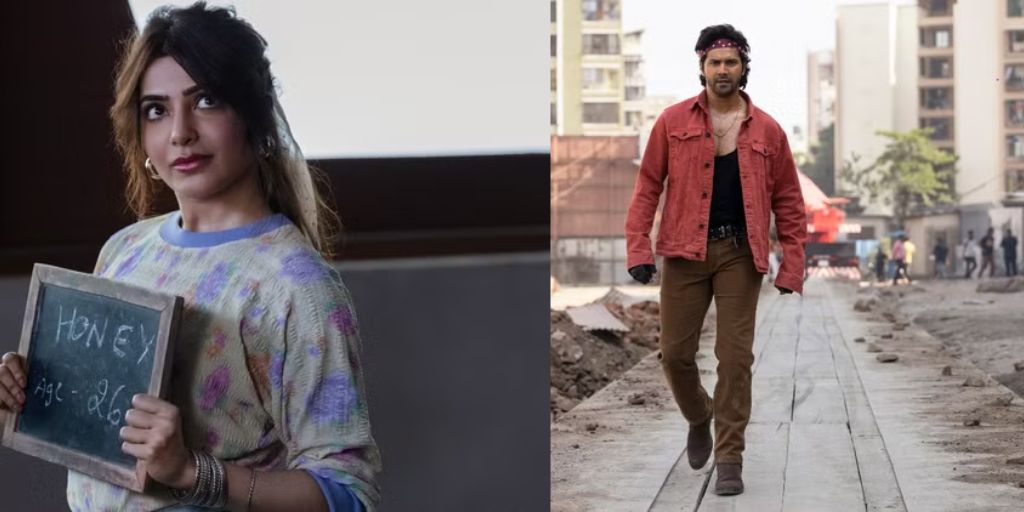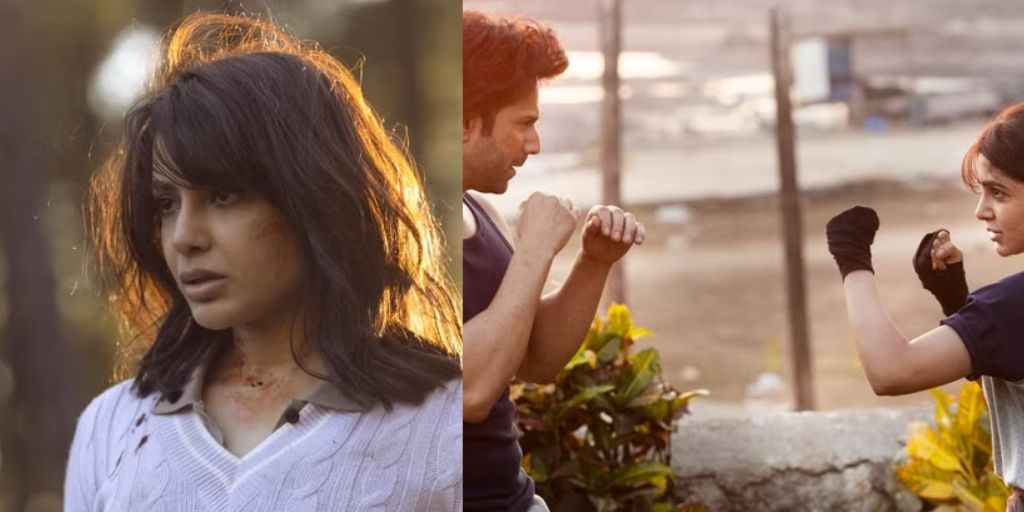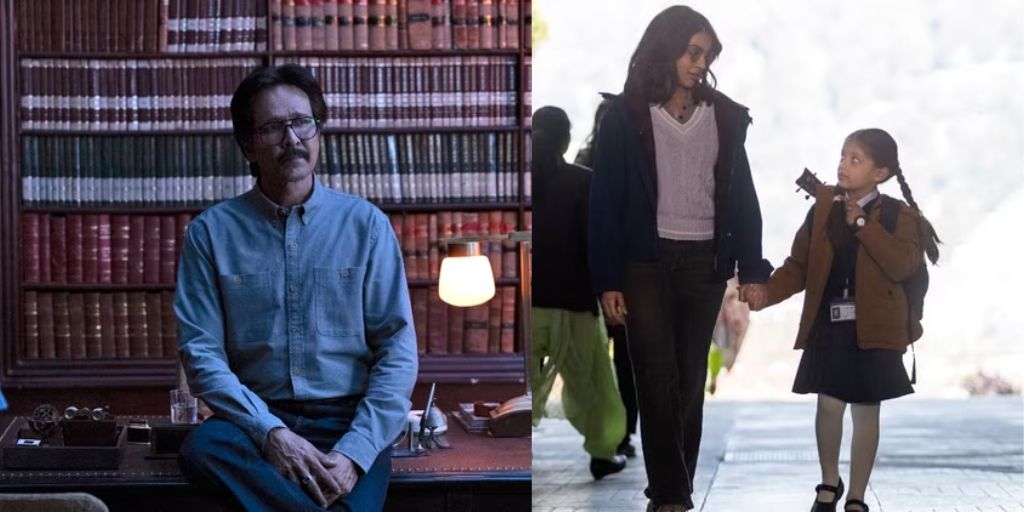In the modern television, it’s become common for new series to either create a brand-new universe or build upon an existing one.
Every new show feels like it needs to create spin-offs or develop a franchise. For example, The Boys on Prime Video gave birth to Gen V and an animated anthology.
Taylor Sheridan’s Yellowstone led to two prequel shows, while CBS’s Elsbeth came from The Good Wife and The Good Fight.
When the Russo Brothers launched Citadel in 2023, it was announced as an “international event series,” with spin-off shows planned in different locations, from the Italian Alps to Mexico. This series became a big part of what many fans are calling the “Spyverse.”
Following the success of Citadel, a spin-off titled Citadel: Diana was released in the previous month. This show developed the Citadel universe even further, with a storyline that mostly takes place between Seasons 1 and 2 of the original Citadel show.
However, the recent release of Citadel: Honey Bunny marks a shift in the direction of the series. Unlike the other parts of the franchise, this series is not just a prequel or a spin-off in the usual sense. It does much more.
Citadel: Honey Bunny not only takes us back to the origins of the characters but also stands out as the strongest installment in the Citadel universe.
The series boasts impressive stunt work, complex characters, and a perfect mix of drama and action. Let’s go deeper into why Citadel: Honey Bunny is a must-watch.
What Is Citadel: Honey Bunny About?
Citadel: Honey Bunny introduces a fresh but familiar tale set in two different timelines. The show is set in 1992 and 2000.
These timelines help build the central story about romance, action, and espionage. The year 1992 is where we first meet the characters of Honey and Bunny.
Honey, played by Samantha Ruth Prabhu, is an actress trying to make it big. She has a lot of dreams but is stuck doing small roles in movies.
Bunny, portrayed by Varun Dhawan, is a stuntman who works behind the scenes. His job involves doing dangerous stunts for the heroes of the movies, yet his face is never shown.
Even though Bunny’s work is vital, he knows that he will never be the star of the film. Still, he keeps working hard, putting his life at risk to make sure others look good on screen.
Honey and Bunny have been friends for a long time, and they share a bond that goes beyond work.
One day, after another failed audition for Honey, Bunny is there to comfort her. However, this time, instead of just offering sympathy, Bunny makes her an offer that will change everything.
Bunny works for a secret agency led by the mysterious Guru, played by Kay Kay Menon. Guru is a man who recruited Bunny as a young orphan and trained him to become the perfect spy.
Although Honey initially hesitates, she eventually joins the agency. However, Guru is not pleased with bringing a woman into the team, and he warns her that the world of espionage is dangerous for someone like her.
As Honey undergoes her training, she grows more determined to prove herself. Under Bunny’s guidance, she becomes a skilled agent.
But as she spends more time with Bunny, the two of them become closer, and their relationship turns romantic. However, as their connection deepens, Honey starts to question the motives behind the agency’s actions and whether Guru can be trusted.
Fast forward to 2000, and Honey is leading a quiet life, raising her daughter, Nadia (played by Kashvi Majmundar). She’s been away from the dangerous world of espionage for years, but when an old enemy resurfaces, Honey and her daughter are forced to go on the run.
In the process, they find themselves reunited with Bunny, who has retired from spy work. Despite Bunny’s desire to stay out of danger, he is willing to risk everything to protect his family.
Bunny calls on his old friends and fellow agents Chacko (Shivankit Singh Parihar) and Ludo (Soham Majumdar) to help him with one final mission to save Honey and Nadia.
The show’s central focus is on the relationships between the characters, particularly Honey and Bunny. Their journey is filled with twists and turns, both in their professional lives and personal connections.
Citadel: Honey Bunny doesn’t just focus on global espionage; instead, it tells a grounded, intimate story about love, loyalty, and betrayal. It’s this mix of drama and action that makes the show stand out in the larger Citadel franchise.
Citadel: Honey Bunny Thrives on the Strength of Its Cast
One of the biggest reasons Citadel: Honey Bunny stands out is because of the incredible performances from its lead actors, Varun Dhawan and Samantha Ruth Prabhu. From the moment they appear on screen together, it’s clear that they have fantastic chemistry.
Their relationship feels real and intense, which makes their scenes together both dramatic and emotionally charged.
There are moments when it’s hard to tell whether Honey and Bunny are about to kiss or fight. This tension adds a layer of complexity to their relationship, making it much more than just a typical spy romance.
As their relationship progresses, their bond is tested by the dangers of their work and outside forces that threaten to tear them apart.
The emotional tension between them only grows as the story moves forward, and viewers are able to see the depth of their love and how much they care for each other, even after years of separation.
The performances of both actors bring these emotions to life and make the audience root for them, even when the stakes are high, and the risk of failure is looming.
The supporting cast also does an excellent job of adding depth and dimension to the story. As Nadia, the young version of the Citadel agent, Kashvi Majmundar impresses with her ability to play a character who is both smart and charming without falling into the trap of being an annoying child actor.
Meanwhile, Kay Kay Menon’s portrayal of Guru is both attracting and unsettling. His character is complex—at times, he inspires loyalty in others, while at other moments, he comes across as a potential threat to the main characters.
Guru’s actions drive much of the tension in the story, as Honey and Bunny struggle to understand his true intentions.
Chacko and Ludo, played by Shivankit Singh Parihar and Soham Majumdar, add another layer to the plot. These two agents have been part of Bunny’s life for years, and while they each have their own personal struggles, their loyalty to Bunny never wavers.
Whether they’re working together in the field or having personal moments of reflection, the chemistry between the characters is undeniable. Even though some of the characters have left the agency and sought peaceful lives, their bonds remain strong.
Sikander Kher and Saqid Saleem play the antagonists, Shaan and KD, with a surprising level of complexity.
These two characters bring an extra layer of conflict to the story, but unfortunately, Simran’s character, Zooni, doesn’t get the same level of development.
Despite her importance to the plot, Zooni’s character feels underexplored, which is a shame given the stakes involved in the narrative.
Citadel: Honey Bunny Is a Perfect Blend of Family Drama and Espionage Thriller
While Citadel: Honey Bunny may not have the same world-saving stakes as its predecessors, it doesn’t need them.
The series is more grounded and focuses on the importance of family, loyalty, and how loyalty can sometimes blind people to the harsh truths.

Bunny, in the past, works for a man he refers to as Baba because he believes he owes him everything. Honey, on the other hand, sees through Guru’s motives and begins to question whether she should continue working for the agency.
Today, Honey’s main goal is to protect her daughter, Nadia. Once Bunny discovers that he is Nadia’s father, his sole focus becomes keeping her safe.
The series doesn’t just revolve around global threats; it goes deep into the emotional drama of family dynamics and how these relationships evolve over time.
The action scenes in Citadel: Honey Bunny are also a major highlight. Raj and DK, the directors, are well-known for their work in both film and television, and they bring their signature style to the show’s fight sequences and stunt work. The long-take action scenes are some of the most thrilling moments in the series.
Both Dhawan and Samantha are put through their paces in these intense action sequences, where they fight and shoot their way through enemies.
The cinematography and editing play a huge role in making these action scenes unforgettable. With the help of editor Sumeet Kotian and cinematographer Johan Heurlin Aidt, the action is presented in a visually dynamic way that keeps viewers on the edge of their seats.
Despite the show’s many strengths, there are still a few minor issues. The most frustrating aspect of Citadel: Honey Bunny is the open-ended nature of the finale.
While the series sets up plenty of tension and excitement, the ending leaves the story unresolved, with no clear indication of whether a Season 2 will be coming.
This cliffhanger approach may leave some fans frustrated, but given the strength of the show and the star power of the leads, it’s likely that we will see more of this universe in the near future.
Citadel: Honey Bunny Stands Strong on Its Own
Citadel: Honey Bunny proves that it doesn’t need to rely on the larger Citadel universe to succeed. While having some basic knowledge of the existing world helps, the series is powerful enough to stand on its own. It’s a tightly focused, action-packed thriller that doesn’t sacrifice character depth for mindless action.

It’s a story about love, family, and the complexity of loyalty, with a perfect balance of drama and espionage.
Citadel: Honey Bunny should be on your watchlist if you enjoy emotional character-driven stories with high stakes. Citadel: Honey Bunny premieres November 7 on Prime Video.




